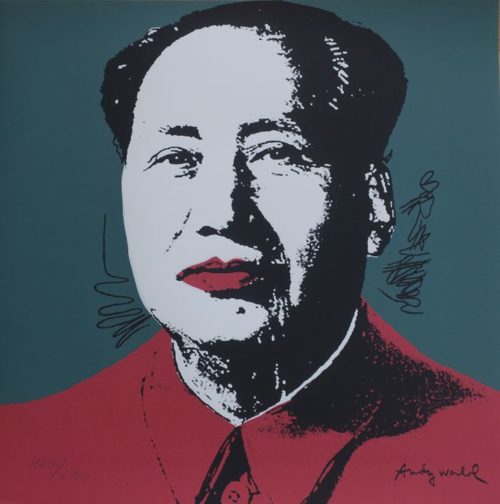
Garry Fabian Miller (photogram)
“With their marked gift for calculation, the Jews “live” according to the principle of race, and indeed have done so for the longest time, for which reason they themselves most vigorously resist its unrestricted application. The arrangement of racial breeding stems not from “life” itself, but from the hyper-empowerment of life by machination (Machenschaft).”
Martin Heidegger (Überlegungen XII, 82. Überlegungen XII-XV, GA. Peter Trawny translation)
“Carl Schmitt’s polemical discussion of political Romanticism conceals the aestheticizing
oscillations of his own political thought. In this respect, too, a kinship of spirit with the
fascist intelligentsia reveals itself.”
Jurgen Habermas (The Horrors of Autonomy: Carl Schmitt in English)
“In truth, we are relativists par excellence, and the moment relativism linked up with Nietzsche, and with his ‘Will to Power’, was when Italian Fascism became, as it still is, the most magnificent creation of an individual and a national Will to Power.”
—Benito Mussolini (Relativismo e Fascismo , quoted by Richard Wolin ‘Seduction of Unreason’)
“I have something to say, I just don’t know what it is.”
May 68 graffiti. (cited in Michel de Certeau Practice of Everyday Life)
One of the most prominent trends in contemporary discourse (sic) is one that insists on conflating fascism and communism. On the most basic level this is easy enough to understand, it’s an easy and simplistic lumping together of ideologies the better not to consider what each means. Of course it is increasingly difficult to gauge, accurately, what contemporary discourse actually looks like. Social media, as I never tire of pointing out, is a massively distorted mirror on the world. That said, I have been returning to the topic of capitalism and its durability in the last couple posts. Perhaps because I sense this is a form of endgame, for neo liberalism, for the empire, for capitalism itself. And because of that I feel a need (and not just me) to unwrap the origins of capitalism and of colonialism, racialized thinking, and how technology factors into this story.
Also, the erosion of much left thought (not all by any means, it needs be pointed out) seems best penetrated through cultural deterioration and the growing absence of art in society. Now maybe I should say the absence of meaningful art, or what has traditionally been understood as meaningful art. And then, by extension, the growing loss of meaning altogether.
First, another aspect of the erosion of leftist thinking is the rise of (I can only assume) state agents posing as communists, a form of agent provocateur, psy ops, cop, writing especially, though not exclusively, on social media. Its very difficult to explain why Chomsky or Chris Hedges are so insidious. All I can say is look closely, friends. Do close readings of such people.
It is easy to get paranoid, of course. And social media is a breeding ground for that, too. But as an entry topic for the decline of aesthetics and a growing normalization of fascist thinking no better place to start can be found than Martin Heidegger.

Werner Tubke
“This emptying out and distorting of ordinary concepts with empirical content in favor of bogus metaphysical abstractions is typical of Heidegger’s (pseudo)political ruminations in the ‘Black Notebooks’…”
Taylor Carman (Heidegger and the Myth of a Jewish World Conspiracy, review of Peter Trawny’s book of the same name)
Carman’s review of Trawny’s book is excellent. It concludes with this…“Much (not all) of what has been written over the years about Heidegger’s Nazism and anti-Semitism is of historical interest, but strictly speaking useless for gaining any insight into exactly how his actions, his fears, his prejudices, his ideological commitments — his at times solipsistic, delusional fantasies — figured into his philosophical thinking. The ‘Black Notebooks’ now provide new material with which we can take such questions seriously, as we must. “ (Ibid)
Heidegger’s rise in popularity occurred well before the Black Notebooks came to light. But there was ample evidence of his Nazi sympathies anyway. There were people who were still alive and saw first hand Heidegger’s actions and heard his lectures. So why did this unrepentant Nazi become so acclaimed, why did so many on the left applaud him and analyse his work — without ever seriously asking about his political affiliations. Or just about his obvious antisemitism. This blog, all ten years of it, has been trying to answer this question, and others like it, or related to it. I have approached this topic from a variety of angles, and gone into long digressions on stuff that seemed germane. But the loss of taste, of discriminatory experience, of educated aesthetic argument is in my mind paramount in understanding the disaster of contemporary western society. I remember years ago, in NYC, with my old friend and mentor Terry Ork, discussing the appeal of certain fascistic leaning books or thinkers, and certain artists. While many leftists I know decry Celine, an obvious antisemite and fascist, I find his work remarkable and very useful. He was a great writer. But nobody was fooled he was a decent human being. He was not. And any appreciation of Celine is and must be colored with his fascist beliefs. Far more dangerous is the allure or draw of stuff like Carl Jung (more on that below), for example. Or, Nietzsche. Let alone the more obvious Ayn Rand. One could dissect Stephen King, but that is also too obvious. King is essentially a Dick Wolfe show tricked out as horror/ fantasy and in book form.
But looming above all of this is Heidegger. But to get to Heidegger, in a cultural sense, one has to go through Nietzsche.

David Spriggs
“Mein Kampf never mentions Nietzsche’s name. Nevertheless, following Hitler’s visit, he was posthumously canonized as the philosophical inspiration behind Nazism. Unlucky in life, Nietzsche was in many ways even unluckier in death. In his 1952 book, The Destruction of Reason, the Marxist philosopher Georg Lukács confidently asserted, ‘Nietzsche foreshadowed in the most concrete fashion possible Hitler’s fascist ideology.’ In 1981 the influential German news magazine ‘Der Spiegel’ ran a cover story, featuring pictures of both Nietzsche and , with the provocative headline: “Hitler Perpetrator, Nietzsche Thinker.”
Richard Wolin (The Seduction of Unreason)
The rehabilitation of Heidegger, after WW2, is modeled exactly on the rehabilitation of Nietzsche. For the English speaking world the rehab found its voice in translator Walter Kauffmann. I can remember first reading Nietzsche in Kauffmann’s translations, because, well, there largely weren’t any others. Dog eared paperback copies of Thus Spake Zarathustra were seen in the back pocket of Levi 501s pretty much everywhere one went in the 60s and 70s (along with Jung’s Memories, Dreams, Reflections)
“In the wake of Kaufmann’s liberal Nietzsche, a different rehabilitation strategy began to take hold. The new approach—the “postmodern Nietzsche”—could not have been more different than the Nazi understanding of Nietzsche as an apostle of power politics. According to this new interpretative tack, Nietzsche’s work was emphatically apolitical. In this reading Nietzsche appeared as a detractor of metaphysics, a convinced relativist, and something of an aesthete.”
Richard Wolin (Ibid)
Wolin notes the Will to Power idea got de contextualized… it ” becomes independent, emphasizing life as a process of incessant and directionless self transformation.” This aligned with a self help culture just then taking root in North America. This was the post modern, post Freudian Nietzsche. The Jungian Nietzsche. One divorced entirely from politics and history. This was a domesticated Nietzsche, one embraced by thinkers like Rorty, and by undergraduates everywhere. More significantly, perhaps, was the growth of the so called *French Nietzsche*. The post modern universalist. Wolin quotes Vincent Descombes on the shift from Marx to Nietzsche : “Burning the idol venerated until now, this generation denounced the dialectic as the supreme illusion, from which it sought to free itself through recourse to Nietzsche.”

Albrecht Durer (gouache on parchment, detailed with gold. 1494)
French intellectuals abandoned Sartre, yet were still able to self identify as radicals while steering clear of material history. Pierre Klossowski was anointed the lode star of French Nietzschean thinking. What is most telling in this evolution is that the Klossowski Nietzsche was really just an anti-rationalist. Nietzsche began to become a brand. Shit, you didn’t even need to read him, really, because, per Klossowski, it was within Nietzsche’s obscurity that one found his genius. Nietzsche as mystic.
“In Klossowski’s view, Nietzsche’s doctrine of eternal recurrence negates and surpasses all of his previous ideas. Before his 1881 vision Nietzsche’s thought remained “idealistic”: he still believed in the virtues of ‘culture.’ Only with the idea of eternal recurrence, claims Klossowski, did Nietzsche abandon idealism and embrace the fundamental Chaos that subtends all existence. His other precepts, such as the ‘will to power,’ were teleological: they remained wedded to the illusion that there existed worldly values and ends worth pursuing. Only with eternal recurrence did Nietzsche definitively relinquish such delusions. Once Nietzsche realized the illusory character of all language and human ends, silence became the only viable and honest response. Recourse to ‘consciousness’ and ‘reason’ would only falsify this profound realization.”
Richard Wolin (Ibid)
There is still the question of why this shift. Wolin suggests occupation, the fall of the fourth Republic and the Algerian war of independence. All of which is true, I suspect, and France’s loss of global prestige (which is only partly true). May 68 looms, too, but there were splits — thinkers such as Debord do not fit easily into this narrative.
For the French left, there was another pivotal moment, the Black Septemberists and Munich 72.
“But there was another aspect of the Munich affair that provoked soul-searching and revulsion among the Maoists. The GP leadership—Alain Geismar, André Glucksmann, Tiennot Grumbach, Benny Lévy (Pierre Victor), Tony Lévy, and Daniel Linhardt—was preponderantly Jewish. They were, albeit, archetypical “non-Jewish Jews,” that is, assimilated Jews who did not self-identify as Jewish. Almost all had negligible religious training and possessed a relatively limited sense of Jewish cultural belonging. Nevertheless, the Munich massacre triggered a long-repressed religious dimension of gauchiste collective psychology. It was hardly accidental that of the four major leaders of the May student revolt—Daniel Cohn-Bendit, Alain Geismar, Alain Krivine, and Jacques Sauvageot—three were Jews. (Sauvageot, the head of the National Union of French Students, was the lone exception.) Following the Holocaust, French Jews had grown suspicious of the republican-assimilationist, “immigrants into Frenchmen” model of citizenship, and were left to wonder whether they would ever be accepted as entirely French. Such doubts provoked more general misgivings about the virtues of French belonging and about French society in general; when all was said and done, was assimilation merely a sophisticated ruse to deprive French Jews of a Jewish identity[…]”
Richard Wolin (The Wind from the East)

Claudia Borella
So the narrative of a rehabilitated and domesticated Nietzsche also includes the global reaction to a rising mass culture and the reification of everyday life, and the revanchist racialist thinking that originated long before the Industrial Revolution. Also, the radical left in France associated itself with resistance to the Third Reich. In Germany and Italy, the post war left remembered their countries fascist governments, and knew the continuities of fascist thinking within the post war administrations. In France, the student Maoists were staunchly bourgeois in background. Far less so in Germany and Italy, which gave birth to the Red Army Faction and Red Brigades. Putting all these influences into a schema is pointless because one doesn’t exist. But in France, the impulse for a revolutionary change took more cultural directions, more aesthetic, too, and probably, as Wolin notes, “radical politics stressed the ideals of authenticity and self-realization.” (Ibid)
The point here is to see the influences that created the conditions for a Heidegger renaissance. There are obvious answers to this, starting with a ruling class affinity with fascism.

Andreas Mühe, photography.
“The Jewish race as a whole…possesses an unconscious which can be compared with the Aryan only with reserve. Creative individuals apart, the average Jew is far too conscious and differentiated to go about pregnant
with the tensions of unborn futures. The Aryan unconscious has a higher potential than the Jewish; that is both the advantage and the disadvantage of a youthfulness not yet fully weaned from barbarism. In my opinion it has been a grave error in medical psychology up till now to apply Jewish categories…indiscriminately to Germanic and Slavic Christendom.”
Carl Jung (The State of Psychotherapy Today)
It is important to remember with regard to Jung that he early on had considered the theosophist teachings of various German language thinkers. I have written on this before in this blog.
https://john-steppling.com/2021/12/christmas-2021-heres-what-we-know/
Jung had early in his professional life differed from Freud in respect to the unconscious. For Jung there was a harkening back to a primordial stratum of archaic emotions– for lack of a better term. What is relevant is that the Jungian psychic architecture includes a mythic level. But it is not a mythos that is ever critically evaluated. Freud continuously suggested something of an archaic psychic heritage, but he never romanticised it. I am not of the opinion that Jung is worthless as a thinker. He was written some insightful and highly important works. But, he is also perilously close to Heidegger in his privileging of Slavic obscurantism.
Wolin has an excellent paragraph on Jung;
“As memories of the war faded, analytical psychology began to make inroads among the denizens of the “affluent society.” Freud’s vaunted Kulturpessimismus, which had been honed in the precarious calm of interwar Europe, dovetailed poorly with the ever-rising expectations of a society of abundance. As the age of commitment—the 1960s—ceded to the “culture of narcissism,” a cultural breach emerged, which Jungians managed to fill with a vengeance.
An era of rising social expectations suggested that the id no longer needed to be feared but could now be safely explored. Amid the hunger for meaning provoked by the consumer society’s spiritual void, it seemed that Jung’s pseudo-religiosity had infinitely more to offer than the dour sobriety purveyed by the champions of psychoanalysis. Jungianism became the alternative religion of choice for New Agers with 401(k)’s and disposable incomes.”
Richard Wolin (The Seduction of Unreason)
Jung was also, like the French Nietzsche, a valoriser of the obscure. There was a lot of illustrations to go with the text in Jung. Freud was viewed as too pessimistic. Jung was simply more digestible. It was easier to embrace Jung because his mythologies were never scrutinised. By the late 60s the fact that Jung wrote on the I Ching and the Paranormal was simply made to order for a wider public. It is also worth noting that Freud projected an image of severity and (!) of Jewishness. Jung had honed his persona as sage and shaman. A teutonic Swiss sage.

The photo of Aldo Moro taken by the Red Brigades and released on April 20, 1978
From whence comes this idea of self-realization? For it seems that this idea, which sprung from a misappropriation of psychoanalysis, coupled to the latent nationalism that seems forever embedded in modernity, also seems invariably to poach at least a structural antisemitism, if not outright antisemitism. This may seem odd, or absurd even, but I will explain, or try to. This is why the lesson of Heidegger is so significant. Heidegger’s speech, following the Reichstag fire in 1933 by a few months, to students at the University of Freiburg, where he had been appointed rector, is nakedly anti-democratic, antisemitic and hyper nationalistic. One is given pause at this point because this speech was available, even in English, for decades now.
“…when Heidegger was able to connect the destiny of the Germans with that of ‘being’ in general, his path to Hitlerism was cleared. … National Socialism [for Heidegger] represented the revolt of the German Volk to regain its threatened being.” In this way, Nazism and Hitler would save “being” from the ravages of Western progress, and German dasein from a “sharp pincer movement between America and Russia.” For Heidegger, the “inner truth and greatness” of Nazism also illuminated “the confrontation of planetary technology with modern man.”
Jeffrey Herf (Reactionary Modernism: Technology, Culture, and Politics in Weimar and the Third Reich)
Heidegger’s speech in 1933 reads like a description of contemporary White House policy, both foreign and domestic. The nationalism, the hints that too much knowledge is dangerous, the targeting of outside threats to our future glory (substitute Russians for Bolshevik Jew). On a daily basis I read articles warning of the great dangers of AI technology (it’s not a stretch to see AI as the new Bolshevik — the Digital Jew!). That it portends the end of humankind no less. It also resonates with much of the fear mongering in climate discourse. And it was this irrationalist streak that is found in Heidegger (coupled to *world Jewry*). In one sense, this overestimation of digital tech today is structurally reflective of Heidegger’s anti technology writing. Now anyone who reads this blog knows I am constantly criticizing tech but often because it doesn’t improve anything, it doesn’t do what the experts claim, and in the case of AI, it is a mythology or ideology, really, posing as science. But buried in the currents of this irrationalism was also the effects of this liberal Nietzsche. The individualizing idea of bespoke psychic identity. In the rise of consumerism came the consumer for a psychic identity. Self realization, though, was yet another added layer of narcissism. What is one realizing, exactly? There the residue of an idealist romanticism in this.

Evelyn Richter, photography (GDR, 1982)
In the opening pages of Jargon of Authenticity ,( Adorno’s critique of Heidegger) Adorno describes an idea of authenticity that is near exactly what one sees today in the self help industry, and on social media vis a vis the pandemic protocols.
“Those united together were anti-intellectual intellectuals. They confirmed their mutual understanding on a higher level by excluding one who did not pronounce the same credo they repeated to one another. What they fought for on a spiritual and intellectual plane they marked down as their ethos, as if it elevated the inner rank of a person to follow the teaching of higher ideals; as if there were nothing written in the New Testament against the Pharisees. { } “ He too had been warned against, and dispensed from, having dealings with people who do not toe the line; as though critical thought had no objective foundation but was a subjective deviation. People of his nature combine the tendency that Borchardt called a putting-themselves-in-the-right with the fear of reflecting their reflections—as if they didn’t completely believe in themselves. Today, as then, they sense the danger of losing again what they call the concrete—of losing it to that abstraction of which they are suspicious, an abstraction which cannot be eradicated from concepts. They consider concretion to be promised in sacrifice, and first of all in intellectual sacrifice. Heretics baptized this circle “The Authentic Ones.”
Theodor Adorno (The Jargon of Authenticity)
There is a remarkable correspondence between what Adorno saw in the cultic following of Heidegger, and in today’s woke discourse. Writing of Being and Time (Heidegger’s early opus)…
“His book acquired its aura by describing the directions of the dark drives of the intelligentsia before 1933—directions which he described as full of insight, and which he revealed to be solidly coercive. Of course in Heidegger, as in all those who followed his language, a diminished theological resonance can be heard to this very day. The theological addictions of these years have seeped into the language, far beyond the circle of those who at that time set themselves up as the elite. Nevertheless, the sacred quality of the authentics’ talk belongs to the cult of authenticity rather than to the Christian cult, even where—for temporary lack of any other available authority—its language resembles the Christian. { } Prior to any consideration of particular content, this language molds thought. As a consequence, that thought accommodates itself to the goal of subordination even where it aspires to resist that goal. The authority of the absolute is overthrown by absolutized authority. Fascism was not simply a conspiracy—although it was that—but it was something that came to life in the course of a powerful social development. Language provides it with a refuge. Within this refuge a smoldering evil expresses itself as though it were salvation.”
Theodor Adorno (Ibid)

Phillip Guston
Now, there are curious paradoxes in the direction of contemporary obscurantism, and in a sense Jung is a good example. I have said before that while I am a Freudian in the most basic sense, I would, should I desire therapy, seek out a Jungian analyst. The reason is that Jung, for all his borderline antisemitism (and maybe it’s across that border) was adroit about the nature of narrative. His therapeutic writing sees the allegorical with the patient’s story. Jung’s conclusions, where he even addresses such things, are invariably wrong, ambiguous and tendential, but the process, the grasp of the deep springs of narration, are surprisingly penetrating.
This speaks to the value of writers like Alice Miller and Marie Louise Von-Franz. But this is double edged, too. In one sense the fairy tale is a valued delivery system for traditional wisdom and thought. But as the 20th century inched into its second half, the fairy tale began to take on qualities of kitsch, and of the Disney effect (which I will try to define below). The jargon of authenticity is displayed today in nearly all movements launched by the state and its satellites — in climate discourse, in the pandemic, and in the trans-movement perhaps most of all. The fetishizing of pronouns for example, and the enforced demand for code (TERF etc). And to not use such jargon is the definition of guilt. You are what you have not used (as jargon). I used to teach aspiring playwrights with exercises borrowing technical or vocational jargon from various fields. Such as only use terms found in a Mortician’s trade magazine. Or a quarterly devoted to gunsmiths, etc. There is often a beauty in the precision of technical jargon. Often there are words seldom used outside the field. Today, as people’s vocabulary shrinks, language itself is being strip mined of meaning. And the new authenticity (or acceptable wokeness) imposes new meaning on old words. Or it invents acronyms and new combo-words. (Transphobic, or climate denier, anti vaxxer, conspiracy theorist etc)

Andy Warhol
“Whoever is versed in the jargon does not have to say what he thinks, does not even have to think it properly. The jargon takes over this task and devaluates thought. That the whole man should speak is authentic, comes from the core. Thus something occurs which the jargon itself stylizes as “to occur.” Communication clicks and puts forth as truth what should instead be suspect by virtue of the prompt collective agreement. The tone of the jargon has something in it of the seriousness of the augurs, arbitrarily independent from their context or conceptual content, conspiring with whatever is sacred.{ } As words that are sacred without sacred content, as frozen emanations, the terms of the jargon of authenticity are products of the disintegration of the aura.”
Theodor Adorno (Ibid)
The discourse surrounding any contemporary topic, Russia and Putin, Covid, Transgenderism, climate…pick one, doesn’t matter which, and you will see that where once in critical thinking there was an obvious train of thought. Words had definitions, but their real meaning was found in their relationship to the whole. The words meant something dialectical, in a sense. Or they were part of a dialectic tension in which the philosopher or journalist or even novelist were constructing a deeper or transcendent meaning. So where there has been for decades a kind of severing of word from object, today there is an severing of word from grammar, and more, from relations within the sentence or work itself.
“The jargon obliterates the difference between this “more” for which language gropes, and the in-itself of this more. Hypocrisy thus becomes an a priori, and everyday language is spoken here and now as if it were the sacred one.”
Theodor Adorno (Ibid)
This is also partly the result of the internet. It is the constant fragmenting of thought. And western culture is now entering a phase in which the Heideggerian mysticism and its jargon (per Adorno) has become the ad copy of Madison Avenue. There has always been a counter stream of philosophy to Heidegger and his followers, one linked more closely to positivism and science. But oddly they seem to have converged to a large degree. The language of quantum mechanics is both the child of logical positivism, but it also the child of Heidegger.

Kitamura Junko (ceramic globe)
Adorno perceptively adds that the jargon provides patterns for behavior. Patterns that have been gradually lost due to alienated labour (he cites the sermon in Huxley’s Brave New World amusingly). But the truth in an era of electronic media, screen addiction and mass marketing, the manufactured inner voice now all but completely drowns out (and probably entirely suffocates) the actual inner voice. Internal life is self narrated by jargon. The virtue signaling bourgeois white liberal of today has no idea what he or she is saying. They have real understanding of the purported science behind climate. But self realization is what matters.
“The formal gesture of autonomy replaces the content of autonomy. Bombastically, it is called commitment, but it is heteronomously borrowed. That which pseudo-individualizing attends to in the culture industry, the jargon attends to among those who have contempt for the culture industry.”
Theodor Adorno (Ibid)
Today this is called developing one’s brand.
It is instructive to recognize Richard Wolin’s remarkable autopsy of Heidegger’s fascist core, but Wolin is a lot less perceptive in his book Wind from the East. In a sense, and this is true of a number of thinkers over the last thirty or forty years, for he is guilty, too, of another register of ‘the jargon’. And this is the most troubling aspect of today’s state of non-critical thinking. Wolin sees traditional Marxism as outdated because the hierarchies of class have changed. Now it is true on a superficial level that a cultural loosening took place post May 68. But that loosening, while having a progressive check list of successes, also became simply a new form of alienated subjugation. And this is important; the reactionary trend in Wolin’s non Heideggerian histories is one found in countless drifts rightward from the contemporary left. There are celebrities who identify as liberal or left and they enthusiastically demanded vaccine, enthusiastically encouraged the NATO/US war against Russia, and aggressions against Iran and sanctions against nearly the entire global south. They largely do not see their ideological alignment with the ruling state. The bourgeoisie sympathetic to radical causes in the 60s and 70s began to internalize the neutered Nietzsche, and more, the empty metaphysics of theosophy (which quickly rebranded to New Age health food stores and crystals and mandelas, and an appropriation of Eastern disciples) and the white supremacism (and antisemitism) of the white slavic mythology spouted by Heidegger. Even if none had ever heard of Heidegger. These last two were overlapping and cross pollinated each other. Cutting across this was the colonialist logic of European occupiers. The radical stayed in the banlieues and the bourgeois left turned toward granola and adjustment therapy.

Pontormo (St Matthew, 1525 )
One other aspect of this particular approach, or historical perspective, or perspective on history, is that the climate in Weimar culture encouraged and allowed expression by *conservative revolutionaries* like Carl Schmitt. There were notable others such as Spengler, and Ernst Junger. They all saw the need for some kind of ‘return’, a cultural revolution, or reformation anyway, and this put them in line with National Socialism. One can see the parallel with this bourgeois subject who thinks capitalism needs reform. Just do away with *crony capitalism* or *casino capitalism* or corporate corruption and there is an assumed return to a mythic ‘better’ capitalism. (Boss Tweed capitalism?)
The Nazis didn’t dislike technology per se, they disliked political modernity. They , and Schmitt and Junger, wanted a return to what they saw as classical political and cultural traditions of rank and class order. The national socialists selectively approached the question of tech. They put it to use in strengthening the Aryan mythos, in preparing for the hundred year Reich. And that meant building a great autobahn and later building the most efficient gas chamber. But it was Schmitt who was the most precise thinker. And his work influenced even the Frankfurt School, as well as Hannah Arendt.
“Although the romantic poets and philosophers attacked the commercial bourgeoisie, Schmitt pointed out that it was precisely this ‘settled bourgeois order’ that was the “external precondition” for the romantics undisturbed preoccupation” with the self. ‘Romanticism’ he wrote, ‘is psychologically and historically a product of bourgeois security.’ The romantic tradition in politics had been an escapist one, not only or primarily backward into the past, but inward into the self. In Schmitt’s words, “The romantic doesn’t want to do anything. He only wants to experience and then to form his experience.” Hence, whether romantic rhetoric was reactionary or revolutionary, its ‘occasionalist’ essence ensured that it would have no impact on politics.”
Jeffrey Herf (Reactionary Modernism; Technology, Culture, and Politics in the Third Reich)
Schmitt also saw political romanticism as too feminine. This is a fascinating sort of side bar here. Parliamentarism was viewed as passive, and wishy washy (feminine) . Leaders such as Mussolini were the harbingers of the future. Virile and decisive (Dukakis and his tank photo op. He wanted to be Mussolini). Herth has a very telling paragraph at the beginning of his chapter on engineers in Weimar. And it is relevant in the discussion here of this convergence between Heidegger and logical positivism.

Larry Bell
“That engineers were drawn to nazism at all does not fit very easily into received sociological wisdom. Thorstein Veblen, for example, expected that engineers would be either completely uninterested in politics, or drawn to “soviets of technicians” contrasting production for use with production for profit. Even an observer as sensitive to the extent of irrationality in the Nazi regime as Franz Neumann found it difficult to accept the idea that engineers could participate in the ideological fanaticism of the Hitler regime. In his now classic work, *Behemoth*, Neumann wrote that there was an acute antagonism between the “magic character” of Nazi propaganda and the rational nature of production processes in industrial society. Because engineers were the practitioners of what Neumann called “the most rational vocation,” they would experience this antagonism most intensely, view Nazi ideology as “bunk,” and be one of the first social groups to break with the Hitler regime. Neumann was mistaken.”
Jeffrey Herf (Ibid)
Remember, too, that German industrialists were good friends with American businessmen and bankers. And with a political mandarin class exemplified by the Dulles brothers. The thinking of Schmitt and Junger, or Sombart was perfectly congenial with Washington WASP aristocracy, as was the antisemitism. So you have these converging cultural trends alongside the more generalized inheritance of the Enlightenment, and you have the engine of capitalism (and that capitalist force found values of racial thinking, of bigotry, very useful). I would argue that the racialized Slavic mythology embraced and expressed by Heidegger (who borrowed freely from, consciously and unconsciously) from branches of theosophic thinking was and is a key element in the ways in which western society has evolved. All of which, in one way, brings us back to Nietzsche.
Today’s propaganda machine, driven by ruling class interests and expressed by state institutions and NGOs (and influencers, this curious new manifestation of capitalism) is one that has reached a crisis of self-contradiction. It is not sustainable either psychologically or materially.

Cheolhee Lim
“In whatever endures of the world, the grid, as we live within it today, will have become a fractured and peripheral part of the ruins on which new communities and interhuman projects may possibly arise. If we’re fortunate, a short-lived digital age will have been overtaken by a hybrid material culture based on both old and new ways of living and subsisting cooperatively.”
Jonathan Crary (Scorched Earth)
The above quote is from the first page of Crary’s most recent book. And I think this is exactly right and it’s something the Aesthetic Resistance podcasts has discussed often. The digital is a product of the jargonized mind, and like AI there feels as if there is an inescapable solipsism in everything with which it is associated. Crary suggests planetary survival is at stake. I think the planet is fine, it is the survival of human society that is at stake. The overestimation of technological prediction is profound. The fact that science (sic) makes a new discovery nearly every month might make the cheerleaders of scientism pause. But it seems not to do this at all. That the earth has been discovered to have a vast ocean of sorts beneath its crust might suggest something about survival. I have no idea what, but I know (as I endlessly preach) the earth is vast. The meme of a global village has had a deleterious effect on societal optimism. At least regards technology. The earth is not a village in any way shape or form. It has not become smaller.
It is the same as it has always been. The word *communication* is one of those words Adorno cited in Jargon of Authenticity. And such fetishized terms have bled in art and art criticism, and certainly art pedagogy. There is a banal backdrop of ‘art as communication’. Which it isn’t. Add to this the sense of helplessness people feel today. Crary notes Ivan Illich and his definition of tool. I won’t go into that except to say digital technology is not a tool in the traditional sense. One uses the internet but not as a tool. In one sense the internet uses you. Digital tech has integrated finance with daily life in a way never imagined even fifty years ago. The internet is a paradigm, in a sense, and we adapt to the logic — and as Harold Innis noted, the internet constitutes a monopoly on knowledge. One of the other realities of contemporary mythology is that a new epoch is upon us: The Digital Age. This is more marketing.
“The mythologies of a post-industrial information economy also obscure the persistence of earlier modes of production within the current scramble for resources essential to high-tech weaponry, communication networks, consumer technology products, solar and wind energy systems and much else. Violence to both people and their lands defines these imperial and neocolonial operations, as it has for several centuries. The very possibility of a “digital age” requires the expansion of these destructive industrial practices to world-vanquishing extremes.”
Jonathan Crary (Ibid)

Georgia O’Keefe
The idea of an outdated Marx is pushed by neo-liberal pundits almost every week in Op-Eds from flagship US papers. You hear it on talk shows, and read it in social media. It is a popular opinion.
What is needed today, more than anything, is a Marxist education. And an education in Marx. Education which reads Marx and not various Marxists. Or one or another of those suspect left outlets. (Jacobin for example). Read Freud, too, not Freudians. Afterwards, you can read the glosses and interpretations. The *Digital Age* as an idea is simply marketing. Transhumanism is marketing. Yuval Harari is pitch-man. He is the latest of version 20 Mule Team Borax Reagan. I want to quote a paragraph from Harari’s NY Times article this week:
“In the beginning was the word. Language is the operating system of human culture. From language emerges myth and law, gods and money, art and science, friendships and nations and computer code. A.I.’s new mastery of language means it can now hack and manipulate the operating system of civilization. By gaining mastery of language, A.I. is seizing the master key to civilization, from bank vaults to holy sepulchers.
What would it mean for humans to live in a world where a large percentage of stories, melodies, images, laws, policies and tools are shaped by nonhuman intelligence, which knows how to exploit with superhuman efficiency the weaknesses, biases and addictions of the human mind — while knowing how to form intimate relationships with human beings? In games like chess, no human can hope to beat a computer. What happens when the same thing occurs in art, politics or religion?”
Yuval Noah Harari, et al (You Can Have the Blue Pill or the Red Pill, and We’re Out of Blue Pills, New York Times, March 2023)
Ok, this is easy to dismantle, I think. In the beginning was the word. That’s an Old Testament quote. It’s not an anthropological postulate. Language is not an operating system. Now, to say from language emerges myth and god, and money etc is facile but wrong. Its glib and truthy, but its not actually correct. Its highly reductive, at best. Then he says AI has mastered language. No, it hasn’t. What does that even mean? How do you master language? By being fluent? Civilization has no master key. What does THAT even mean? Now, what would it mean to have computers shape laws and images etc? It would look a lot like what we have today. But AI does not yet *think* apart of those who write the code for it. Harari then says AI can exploit human weaknesses. That already happens with human intelligence. It is what Harari himself is doing with this op-ed.

Cristina Lucas
Two quotes I find related…the first from Mark Twain, titled Moral Statistician.
“I don’t want any of your statistics. I took your whole batch and lit my pipe with it. I hate your kind of people. You are always ciphering out how much a man’s health is injured, and how much his intellect is impaired, and how many pitiful dollars and cents he wastes in the course of ninety-two years’ indulgence in the fatal practice of smoking; and in the equally fatal practice of drinking coffee; and in playing billiards occasionally; and in taking a glass of wine at dinner, etc., etc., etc. And you are always figuring out how many women have been burned to death because of the dangerous fashion of wearing expansive hoops, etc., etc., etc. You never see but one side of the question. You are blind to the fact that most old men in America smoke and drink coffee, although, according to your theory, they ought to have died young; and that hearty old Englishmen drink wine and survive it, and portly old Dutchmen both drink and smoke freely, and yet grow older and fatter all the time. And you never try to find out how much solid comfort, relaxation and enjoyment a man derives from smoking in the course of a lifetime, (and which is worth ten times the money he would save by letting it alone,) nor the appalling aggregate of happiness lost in a lifetime by your kind of people from not smoking.”
The second from Lenny..
“I’ve been accused of bad taste, and I’ll go down to my grave accused of it and always by the same people, the ones who eat in restaurants that reserve the right to refuse service to anyone.”
Lenny Bruce
To donate to this blog use the paypal button at the top. Donations also help support Aesthetic Resistance podcasts
https://soundcloud.com/aestheticresistance/podcast-83

thank you john, i have found nothing more engaging of my mind on the internet.
Your winding & un-tensioning of so many springs makes giving the current state of the “mainsprings” work more than the time of day.
Surely, as the Master pointed out, these thoughts
do not quite gallop robustly. I am circumspect to the
claim to the claim that Nietzsche inevitably led to
National Socialism. And i speak in Fear & Trembling
at the anticipation of a DeSantis approaching Americano Reich.
Nietzsche overcame any antisemitic Lutheran racist
baggage. Certainly, he extolled courage & intelligent
dare & deplored slave morality propensities in Christianity
& Judaism. The tragic factum of his lonely life does
not prove the contrary.
With respect to Heidegger, it is undeniable that he
engaged with National Socialism and a kind of
hyperfascism. I do not intend to provide apologetics
for the moral stench of his detestable political
choices. I just want to state that I found many
aspects, tortz, or, in spite of that. Also I want
to add a comment on the conflicted acceptance of
the often brutal wolf within. But, enough said
for now.
I recently read “Orwell’s Roses” by Rebecca Solnit. I’m not sure I recommend it, but she touches on many interesting topics, including the Spanish Civil War.
The war, as Solnit depicts it, had three sides: Franco’s Fascists, of course. But the Loyalists were split between local anarchists and foreign Stalinists, and the Stalinists were at least as concerned with purging heretics from the Loyalist ranks as they were with fighting Fascists.
Allow me to humbly suggest that this situation is descriptive of the modern Left as well: They often see themselves as anarchists fighting fascists, when really they are Stalinists crushing the anarchists.
Also, I read “24/7” by Jonathan Crary. He had some interesting insights buried in reams of overly academic gibberish, and the book went off the rails at the end, when he started preaching Marxist revolutionary thought. (Or so it seemed to me.)
This lead me to formulate an idea I’m still kicking around: Marxism is a sort of thought that, when introduced into any particular intellectual arena, renders all discourse in that arena incomprehensible.
None of this is to say that capitalism doesn’t suck. Of course it sucks – it sucks battery acid through a sack of dog turds.
I would agree Solnit is a very mixed bag. I forget now what she wrote that really turned me off her, but she does good research, by and large. As for marxism, since I consider myself a marxist I cant really agree with your comment. At least the idea that marxism makes discourse incomprehensible. But I do agree there is this policing mentally in a lot of marxists, and these days so much of officially proclaimed leftists have gone off the rails, that I am in a state of bewilderment. I actually think if they read more Marx they would be better off. The WSWS, who are devout trots, have been just incomprehensibly bad on the pandemic stuff. They still do, often, excellent analysis of other things. My take away is that the issues lie outside marxism per se. The basic marxist tenants still seem correct to me, in fact rather crucial, but the now infinite revisionists of same have made discourse much more difficult. So, we sort of agree on that part.
Cliff, I found 24/7 accessible, not weighted with gibberish. It was one of the books in a chain of books that led me to question the archetypal dream theory. I don’t believe that there are cross cultural values or structural components to the brain that universalize the serpent as a stand in for evil, etc. At this point the ‘nightmare’ of showing up at the board meeting without your pants has completely displaced any heroic symbolism.
I should say, I’m probably using ‘Marxism’ in a less precise way than you. My guess is that outside of some very limited intellectual circles, the ideological distinction between Marx and Trotsky is imperceptible to most people.
And a lot of my gripe is rooted in personal observation that Marxism (of whatever stripe) tends to be associated with largely incomprehensible academic-speak that no actual working class person would be caught dead using.
there is no question that academic jargon is a reality, especially in a lot of post structuralist classrooms. But why should its incomprehensibility be restricted to the working class? I’m working class (i come from a very poor background) and I understand difficult material. I barely got out of high school. The working class is probably the group best able to understand philosophy, actually. But i understand your point, and critical theory became just cringe worthy at a certain point. Sadly. Though, again, I don’t think that its particularly marxism that is to blame (Derrida?).
The response from ostensible Marxists over the covid narrative has been, for me, a shock as big as the covid manoeuvre itself. The WSWS is an utter disgrace, locked into a merciless covid shilling pattern from the start in which no possible alternative view was even mentioned except in rare side-swipes at “deniers” who were invariably “Right Wing”.
But this is an issue that goes way beyond any one organisation. From the dawn of “The Pandemic”, it was as if the entire media underwent a miraculous transformation – a kind of Dickensian repentance in which four decades of “No Alternative” neoliberalism was suddenly replaced by the new “No Alternative” of a “battle against covid”. And with the arrival of such slogans as “We’re all in it together” and “people before profits”, the whole of Western journalism and news-reporting spoke as if The Revolution had come and – by the aforementioned miracle – the very forces previously grinding down the masses were suddenly on their side.
One website Bylinetimes gave us a potted history on how this happened: the various protest groups over the decades – XR, Black Lives Matter, Occupy etc. – had finally somehow managed to “get through” to the presumably now cowering bosses. The WSWS had a particularly entertaining variation on this: it was wildcat strikes across Europe that forced governments into total economic lockdown – all this happening in the first few months of 2020. (Oddly enough, the UK miner strike of the mid-80s lasted a year and was defeated – but you don’t argue with this remake of “A Christmas Carol”!)
And speaking of the WSWS, their shilling for covid wasn’t even their most disgusting offence. They were brutal in their condemnation of the “fascistic” Canadian convoy protest, thereby implicitly lending their support to the brutal financial terrorism of bank accounts being frozen.
The conclusion I reached was that there was indeed a “spook network” operating throughout these “Left” forces.
And the dense verbiage of what we might describe as “academic Marxism” didn’t help. We have here the “Zizek factor” whereby opportunistic text spouters latch on to various items of pop culture and make themselves a career out of a pseudo-radicalism that seems to operate entirely around the familiar contrarianism of the “rock ‘n roll” showbiz model.
thanks george. I was saying exactly this (spook psy ops in the left) the other day. Its becoming ever more clear.
John, I think those are fair points. Working class people are capable of understanding philosophy (but I think it has to be real and applicable philosophy rather than airy contemplation of word-meanings). And I don’t think you can lay the blame for impenetrable academic jargon on Marxism.
I’ll stop busting your chops. Thank you for the civil replies.
to be clear, I’m not blaming marxism. At all in fact. I made the point in this piece vis a vis the French revisionist take on Nietzsche. But no question, there is a lot of bad philosophy today, just as there is a lot of bad art. thanks for your comments.
Sorry again, I didn’t mean “you” as in “you John Steppling,” I meant “you” in the abstract. I should have said “one can’t lay the blame.”